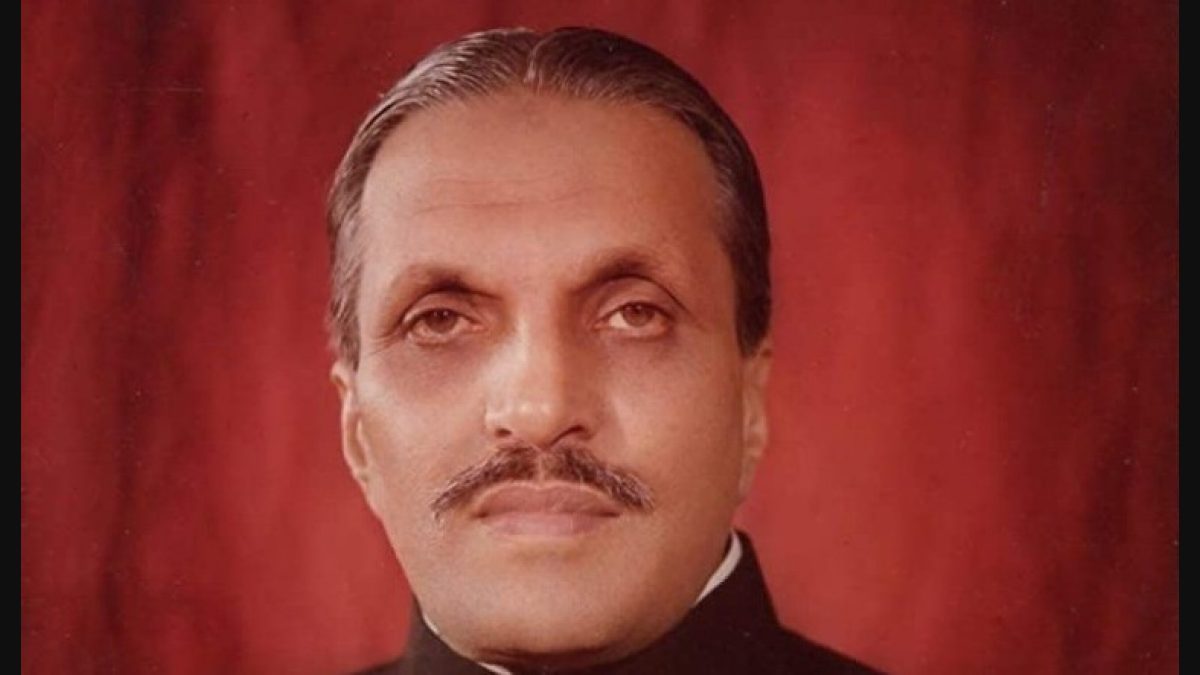The General who ruled Pakistan for 11 years: Who is Muhammad Zia-ul-Haq?
Zia ul-Haq, who displaced a Bhutto by coming to power in Pakistan and brought another Bhutto to the political stage when he left office, is one of the most important politicians in Pakistan's political history.

Zia ul-Haq, who was appointed as the Chief of General Staff by Zulfiqar Ali Bhutto, was the person who led the coup that overthrew Bhutto. After the liquidation and execution of Zulfiqar Ali Bhutto, General Zia ul-Haq, who replaced him, ruled Pakistan for many years.
Zia ul-Haq, who was born in Jalandhar on 12 August 1924 as the eldest child of a family with two children, received his primary education in a public school in Simla. After completing his higher education at St Stephane's University in Delhi, he joined the British Army.
Zia ul-Haq, who served as an army officer in places such as Burma and Indonesia during World War II, resigned from the British Army and joined the Pakistani troops, as did many Pakistanis, after the establishment of Pakistan.
Muhammad Zia-ul-Haq (12 August 1924 – 17 August 1988) was a Pakistani military officer who served as the sixth president of Pakistan from 1978 until his death. He also served as the second Chief of Army Staff of the Pakistan Army from 1 March 1976 to 17 August 1988 (till his death).
While serving in the Pakistan Army, he had the opportunity to participate in training in America and Jordan. Zia ul-Haq, who improved himself in this way, was appointed as the Corps Commander of the city of Multan in 1975. But his real rise within the military took place in 1976 when Zulfiqar Ali Bhutto was elected prime minister. Although there were many ranks higher than Zia ul-Haq in the military, Zulfiqar Ali Bhutto chose Zia ul-Haq for the post of chief of general staff.
Undoubtedly, behind this choice of Bhutto was the "harmless general" profile drawn by Zia ul-Haq, who only contacted him to invite him to worship and invite him to play golf.
But the General did not turn out to be the "passive and harmless" person that Bhutto predicted. In 1977, when a dispute arose between Bhutto and the Pakistan National Union, which was formed by the merger of seven parties, over the elections, Zia ul-Haq began his preparations to take over the government. When the tension reached its peak, Zia ul-Haq made a bloodless revolution on July 5, 1977, overthrowing the Bhutto administration and placing Pakistan under military rule.
Zia ul-Haq, who promised that new elections would be held 90 days after taking over the power of Pakistan and that he would hand over the administration to the elected MPs, reversed his decision in October of the same year. He announced that the elimination of politicians involved in corruption in the past has not yet taken place and that the elections will be postponed until these people are tried. Many politicians were tried in the Liquidation Courts established within this framework.
Former Prime Minister Zulfikar Ali Bhutto, who was among those on trial, was executed on April 5, 1979, after the trial was concluded.
In 1978, Zia ul-Haq became an official ruler by taking over the presidency and making some changes in the state administration. In 1980, a commission called the Shura Council was established, consisting of scholars, academics, writers, and journalists appointed by the prime minister. The establishment of this parliament, whose duty is to supervise and support the prime minister, raised the question "Will Zia ul-Haq make Islamic reforms?" created the question.
As a matter of fact, the referendum held in 1984 answered these questions. Zia ul-Haq, who promised to hold an election, carried out this election in a very different way.
The question asked to the public in the election was "Do you support or do you not support Zia ul-Haq remaining in power and making Islamic reforms?" The General, who received 95 percent of the "yes" votes, implemented his future policies within this framework.
Zia ul-Haq, who tried to be close to the Islamic world, was particularly interested in issues such as the Afghanistan problem and the Iraq-Iran tension. Although he tried to consolidate his place in power by appointing people he trusted to important positions and making changes to the political system during his long-term presidency, history showed that year 1988, Zia ul Hak would have to step down from the stage of power.
Benazir Bhutto's return to Pakistan in 1988, exactly 11 years after the overthrow of Zulfikar Ali Bhutto's administration, coincided with the time when Zia ul-Haq was struggling with oppression.
When rumors increased that there were problems between him and Muhammed Han Cüneyco, whom he appointed as prime minister in 1985, the General dismissed President Cüneyco on May 29, 1998. What caused the President's liquidation was that Cüneyco signed the Geneva Convention despite knowing that Zia ul-Haq was against it.
When the politicians' demands for freedom and authority that emerged after this purge combined with Benazir Bhutto's return to the country, Zia ul-Haq encountered one of the biggest dead ends of his political life. Because Pakistan was heading towards elections the General now had a strong opponent: Bhutto.
However, before the elections took place and before Zia ul-Haq could develop a strategy against the problems that shook his government, he died in a suspicious plane crash on 17 August 1988, among the casualties of which were high-ranking military personnel and the American Ambassador.
The body of Zia ul-Haq, who was believed by the people and rulers of Pakistan to have been the victim of an assassination organized by America, was buried in the grounds of the Faisal Mosque in Islamabad with the participation of a large crowd. After the death of Zia ul-Haq, the general elections held on 2 December 1998 were won by Benazir Bhutto, the General's biggest rival.
